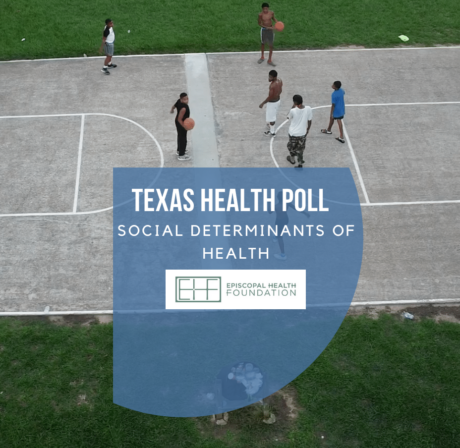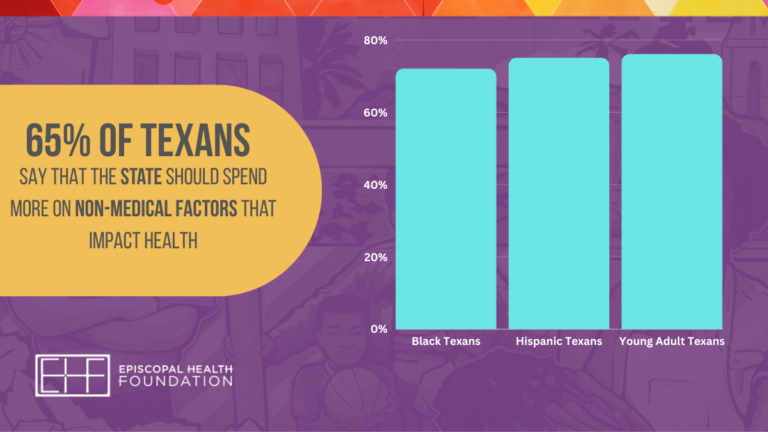
A large majority of Texans say that medical care alone isn’t enough for a person to live a healthy life, so the state should invest more resources to address non-medical factors like unemployment, neighborhood conditions, and housing. Those are key findings from the new Episcopal Health Foundation statewide survey on social determinants of health, also referred to as non-medical drivers of health.
EHF’s poll finds that 65% of Texans say that the state should spend more on non-medical factors that impact health. Black (72%) and Hispanic (75%) Texans, plus young adults under age 30 (76%) are more likely to say that people would be healthier if the state spent more on non-medical factors.

Poll results also show that Texans also want health insurance providers, doctors and clinics to take more steps to address non-medical drivers of health. Researchers found that more than half (56%) of Texans say health insurance should cover non-medical factors that may affect health. In addition, 74% of Texans say that it’s essential or very important for doctors to ask patients about non-medical factors.

EHF’s poll also shows that Texans have had first-hand experience with a wide range of non-medical factors that may affect their health. Researchers found that:
- More than half (53%) say they’ve been unemployed or had a job that didn’t pay well.
- Half of Texans said they lived in an area with poor public transportation.
- Almost half said they’ve faced racial or ethnic discrimination.
- More than a quarter (28%) said they didn’t have access to affordable and healthy food.
Researchers found that other non-medical factors impacting health include living in low-income areas without resources, not being able to get affordable housing, and living in an area with air, water, or chemical pollution.
Methodology
SSRS asked about Texans’ Views on Social Determinants of Health as part of the Texas Health Tracking Survey on behalf of Episcopal Health Foundation. SSRS interviewed a representative sample of 1,203 Texas adults (age 18 or older), reached via landline (n=352) and cell phone (n=851; including n= 705 who could not be reached via landline) random digit dialing (RDD). Interviews were conducted by live professional telephone interviewers in English or Spanish based on the respondent’s language preference.
